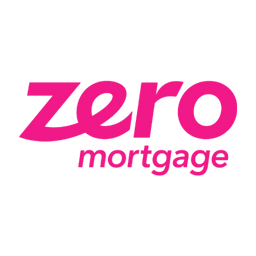Being a homeowner is one of the greatest achievements, but the cost of buying a home may exceed the purchase price. Along with a down payment, you may need to cover closing costs such as appraisal and inspection fees, origination fees, title insurance, property taxes, and cost of repairs, which may skyrocket the final price, typically 2% to 6% of the home’s value.
In some cases, the seller may cover some of the closing costs. These are called seller concessions and can help you save thousands of dollars. Here’s what you need to know about seller concessions for repairs, the pros and cons, and what it covers.
What Are Seller Concessions?
Seller concessions are closing costs that the seller admits to paying for the buyer during the home buying process. They are called concessions because the seller covers the buyer’s costs. Concessions are typically negotiated as part of the offer or requested upfront, and the seller can pay a portion or a percentage of the total closing costs.
Leveraging seller concessions is a great way for home buyers to get a price reduction on the final cost when purchasing their dream homes. However, closing costs can add thousands of dollars to the purchase price. As such, requesting the seller to foot some of these costs is wise.
Seller Concessions: Seller’s Market Vs. Buyer’s Market
Demand exceeds supply in a seller’s market, meaning there are more buyers than the available properties in the housing market. The sellers are often at an advantage in such situations since buyers are competing to score a property. The many offers will drive up the price, and the seller will often go with the highest bidder. Getting the seller to pay concessions in a seller’s market is difficult.
On the other hand, the seller may be willing to pay concessions in a buyer’s market. This is because the supply exceeds demand, meaning more homes are available for sale than buyers. In such a market, sellers may find it challenging to sell a house, and they may offer to pay a portion of the concessions to attract potential buyers.
Pros And Cons of Seller Concessions
Whether you’re a buyer or a seller, it’s crucial to weigh the pros and cons of using seller concessions.
Seller Concessions Pros
Seller concessions can benefit both the buyers and sellers. Concessions can reduce the upfront cost buyers need to pay. This can free up some cash they can allocate to other costs, such as a down payment.
For sellers, concessions are a great way to sell your home faster. In addition, agreeing to pay part of the closing costs is a huge selling point.
Seller Concessions Cons
It’s not always a guarantee that the seller will accept to pay concessions. In a seller’s market, asking for concessions could delay the home buying process. As a result, the seller will often go for offers without concessions.
If you’re selling a house when the demand is low, seller concessions could lower the amount you take home. While the purchase price may look enticing with concessions, you may walk away with less money than expected.
What Do Seller Concessions Cover?
Seller concessions can cover a wide range of closing costs, including:
- Property Taxes: Property taxes are often paid in advance before closing.
- Transfer Taxes: The fee charged by your state to transfer the title of a property is referred to as transfer taxes.
- Attorney Fees: Depending on where you live, you may need a lawyer to review your closing documents. You’ll pay attorney fees for this service.
- Appraisal Fees: This covers the cost of hiring a third party to evaluate the market value of your home.
- Title Insurance: This is a form of indemnity insurance that protects lenders and home buyers against financial loss during property transfer.
- Origination Fees: This is the cost that lenders charge for processing your loan application.
- Discount Points: Also referred to as mortgage points, discount points are fees paid to the lender to reduce the loan’s interest rate.
- Credit Report Fees: Lenders typically pull credit reports during the loan application process to evaluate your creditworthiness, which incurs credit report fees.
- Inspection Fees: Before you list your house for sale, you need to hire a home inspector to examine the condition of your property. The service incurs inspection fees.
Can Seller Concessions Cover Repairs?
It depends on what the real estate contract says. Many real estate contracts have a home inspection contingency that states the buyer’s and the seller’s options if problems arise during the inspection. If a home inspection illustrates that costly repairs must be made, a seller may offer a concession to offset a portion of the cost of repairs.
How Do Seller Concessions for Repairs Work?
As with all real estate transactions, concessions are negotiated early as part of the purchase agreement and incorporated into the underwriting decisions.
If the seller agrees to pay part of the total repair cost, they get a seller credit, which can come in various forms. The most popular way is the seller agreeing to cover a portion of the buyer’s costs.
Another way is tagging the seller credit onto the final price of the home purchase. In such a case, the cost of the house will be decreased by a pre-determined amount, typically equal to the cost of repairs. Other methods can include the seller paying concessions for repairs upfront or the buyer negotiating not to include minor repairs or major repairs in the initial contract.
Are There Rules and Limits?
There are rules and limits on how much sellers can cover in concessions for repairs. Of course, how much the seller can pay depends on the type of loan you’re getting. Here are seller concession limits for some typical home loans.
FHA Seller Concessions
The Federal Housing Administration has capped seller concessions for FHA loans at 6% of the home’s selling price. For example, if the asking price for the house is $300,000, the seller cannot contribute more than $18,000 in closing costs. So even if your closing costs for this mortgage are only $8,000, the seller can’t contribute more than $8,000 in seller concessions.
Also, keep in mind that when a seller contributes more, it lowers the sales price used to calculate the loan amount. Additionally, these funds cannot be put toward a down payment for an FHA loan program.
Conventional Loan Seller Concessions
Unlike FHA loans that follow the rules set by the federal government, conventional loans follow the standards created by Fannie Mae and Freddie Mac. Concessions limits for traditional loans vary depending on the down payment size. Seller concessions limits can range anywhere between 3% to 9% of the home’s purchase price.
VA Loan Seller Concessions
VA loans have restrictive rules when it comes to concessions limits. Sellers can contribute up to 4% of the sale price.










